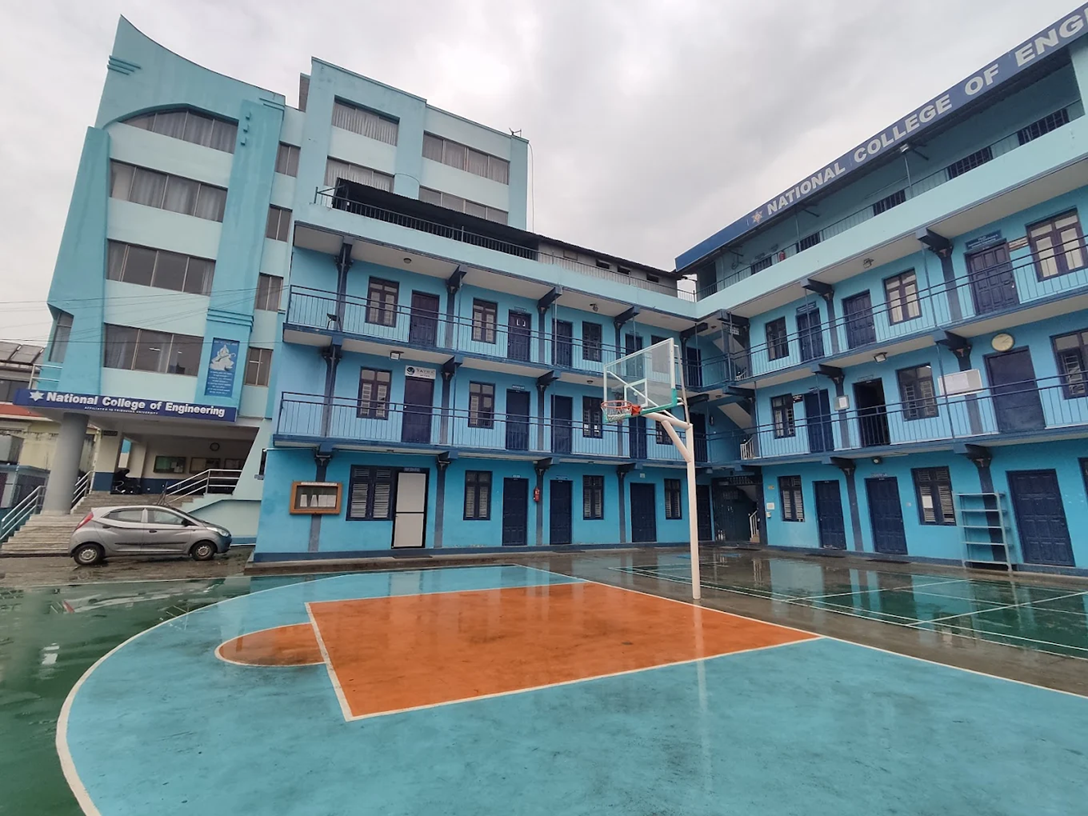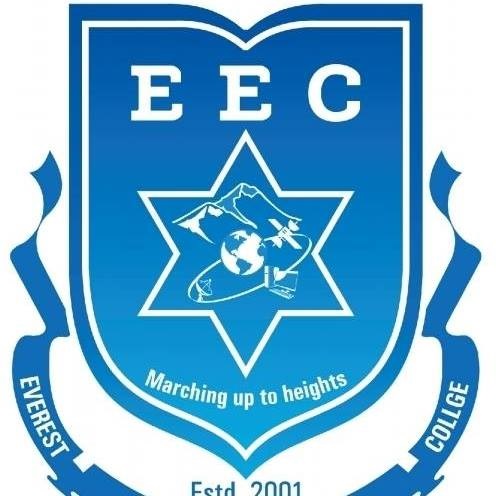Overview
Bachelor of Civil Engineering (BCE) at National College of Engineering (NCE), Talchikhel, Lalitpur
Bachelor of Civil Engineering at National College of Engineering (NCE) is a four-year, TU/IOE-affiliated program based in Talchikhel, Lalitpur.
You will study structural analysis, hydraulics, geotechnics, transportation, water supply and sanitation, construction planning, and surveying, supported by discipline-specific labs and guided projects.
NEC recognition provides a licensure pathway after graduation, and admission follows the IOE entrance system. Seats for Civil Engineering are publicly listed as 96 at NCE.

Overview
Civil engineering at NCE prepares you to plan, analyze, and supervise infrastructure that supports daily life—roads, buildings, bridges, water systems, and slope protection. Teaching follows the TU/IOE semester structure, combining classroom learning, labs, fieldwork, and a final-year capstone project. Campus location in Lalitpur gives access to sites, firms, and professional bodies in the Kathmandu Valley.
Highlights
-
Affiliation: Tribhuvan University (IOE system); NEC recognition for licensure
-
Location: Talchikhel, Lalitpur
-
Duration: 4 years (8 semesters)
-
Intake capacity: 96 seats for Civil Engineering (public listings)
-
Entry route: IOE entrance qualification plus NCE counseling
-
Structure: Theory, labs, surveying camps, mini-projects, and a capstone
-
Scholarships: IOE-mandated scholarship seats and NCE intake-wise schemes
Curriculum Details
The course follows the TU/IOE BCE framework. Subject names can vary slightly by year; the sequence below mirrors core areas across eight semesters.
Year 1–2: Fundamentals and Field Skills
-
Engineering Mathematics, Physics/Chemistry for engineers
-
Engineering Mechanics; Strength of Materials
-
Civil Engineering Materials; Engineering Geology
-
Surveying I & II with field practice and error checks
-
Fluid Mechanics and Hydraulics
-
Theory of Structures I; Probability & Statistics
-
Building Drawing; Soil Mechanics
Year 3–4: Civil Core and Applications
-
Structural analysis methods; RCC and steel detailing
-
Transportation Engineering: alignment, pavement basics, and traffic elements
-
Water Supply and Wastewater systems; Environmental Engineering topics
-
Foundation Engineering; Estimation and Costing
-
Construction Planning and Management
-
Electives as per IOE lists (e.g., hydropower-related topics, GIS exposure, earthquake engineering within the IOE offering)
-
Final-year project addressing a Nepali problem with report and viva
Laboratory and Field Components
Materials testing, soil classification and compaction, hydraulics flumes, surveying with total station exposure where provided, environmental quality tests, and structural detailing sessions using drafting/CAD tools prescribed by IOE.
Objectives
-
Build strong fundamentals in mechanics, materials, fluids, soil behavior, and structural analysis under IOE standards.
-
Prepare students to plan and supervise common Nepali works: local roads, small bridges, water supply and sanitation systems, and municipal buildings.
-
Promote ethical practice, safety, documentation, and adherence to national codes, tying learning to NEC expectations for future registration.
Scope
Civil engineers serve public bodies, consulting firms, contractors, hydropower developers, and development projects. Graduates pursue NEC licensure, sit for competitive exams, or apply to master’s programs in structures, water resources, geotechnics, or transportation. Kathmandu Valley exposure helps you observe retrofit projects, pipeline alignments, and urban road works during scheduled visits.
Learning Outcomes
Students who complete BCE at NCE are expected to:
-
Analyze beams, slabs, frames, and trusses; prepare clear bar schedules and connection details.
-
Plan small water supply layouts, estimate demand, outline basic treatment, and draft distribution concepts.
-
Conduct topographic surveys, prepare maps, and compute earthwork quantities.
-
Interpret soil data, recommend workable foundations, and write concise method statements for common sites.
-
Prepare estimates and simple schedules for building and road works.
-
Communicate findings through drawings, reports, and structured presentations that meet professional expectations.
Skill Development Modules
NCE integrates skill practice into teaching hours, labs, and student clubs. You will strengthen:
-
Survey Skills: Total station/level handling, traverse adjustment, field book management.
-
Structural Detailing: Clear drawings and schedules for RCC and steel members tied to analysis outcomes.
-
Water & Environment: Jar tests, basic water quality checks, and pipeline layout practice.
-
Soil & Materials: Sieve analysis, Atterberg limits, compaction, and concrete tests for quality control context.
-
Project Management Basics: BOQ preparation, cost breakdown, and progress tracking.
-
Technical Writing: Report structure, figure/table captions, and viva practice guided by departmental rubrics.
Teaching Methodology
Faculty conduct lectures, tutorials, lab sessions, and project reviews. Problem-solving classes reference IOE question patterns, while site visits and guest talks connect classroom topics to Nepali projects in construction, hydropower, and municipal services.
The college hosts an R&D unit that supports proposal writing, small grants, seminars, and student-faculty publications, helping you learn how to document and share technical work.
Admission Requirements
-
Entrance: IOE entrance qualification for the relevant intake year (online registration and examination conducted by IOE).
-
Academic background: 10+2 Science or equivalent as per IOE rules; diploma holders can apply if they meet IOE criteria.
-
Application at NCE: Fill the online form on the NCE site using IOE roll number and rank, provide contacts, select program priority, and pay the application fee via eSewa, bank voucher, or Fonepay. Track your status on the portal.
Documents Usually Required at Admission
-
SEE/SLC and 10+2/I.Sc./A-Level certificates and marksheets
-
Character certificate and original migration certificate
-
Citizenship copy and passport photos
-
Color print of the IOE score card
Applicants should verify this list and deadlines on the NCE admission page during the active intake.
Career Opportunities
Early-career roles include junior engineer, site supervisor, quantity engineer, and design-office assistant under licensed supervision. Typical employers are consulting firms, contractors, hydropower IPPs, utilities, municipal offices, and development partners. Graduates move toward NEC registration after meeting experience requirements and may prepare for public service examinations or postgraduate study.
Typical starting tasks you may handle:
-
Setting out, level checks, and reinforcement verification
-
Concrete quality control and cube tests with lab records
-
BOQ support, rate analysis under guidance, and progress measurement
-
As-built drawings and method notes for common works
-
Hydraulic checks for small gravity-fed lines or storm-water layouts
Scholarships and Financial Aid
-
IOE-mandated scholarships: A quota exists within each program under IOE rules.
-
NCE intake-wise schemes: Entrance-rank-based concessions and performance-linked waivers (e.g., semester toppers) are published on the NCE site; recent posts include fee structure and scholarship details for the 2082 intake. Check current criteria and timelines before applying.
Why Choose This Course?
-
TU/IOE framework: Widely recognized national pathway with transparent examinations and curriculum oversight. ioe.tu.edu.np
-
NEC pathway: Clear route toward licensure and professional practice in Nepal.
-
Seat clarity: Public listings indicate 96 Civil seats at NCE, helping you plan choices and timelines.
-
Practice-oriented learning: Labs, surveying camps, and capstone work connect study to real sites in the Valley.
-
Student support: Application portal, admission guidelines, and scholarship notices are accessible on the official website.
Conclusion
Bachelor of Civil Engineering at NCE offers a structured TU/IOE pathway in Lalitpur that blends theory, labs, field practice, and project work. You will gain grounding in structures, water, geotechnics, transportation, and construction management while preparing for NEC licensure and early-career roles in Nepal’s public and private sectors. Prospective students should review the current IOE entrance schedule, confirm seat availability, and check NCE’s scholarship notices before submitting the online form.





















